Search Results
Search
Filter results
Advanced Filters
Your search returned 141 Solutions
-
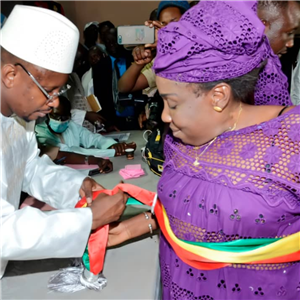
Empowering people with disabilities to stand up in elections in Sub-Saharan Africa
In 2017, Sightsavers developed a programme with partners in Senegal and Cameroon that supports the political participation of people with disabilities, but also sensitizes electoral authorities to inclusive policy-making. Since then, the political presence of people with disabilities has increased significantly.
Sightsavers, Citizenship and political participation programme, Senegal -
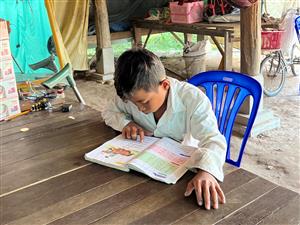
Inclusive education and vocational training in remote rural areas of South-East Asia
Disability Development Services Programme (DDSP), Cambodia: Implements inclusive education projects in rural Pursat province. Integrated children with disabilities into mainstream schools, increasing inclusive class pupils from 255 to 1,105 by 2023.
Mith Komar Pikar (‘Friends of Children with Disabilities’), Cambodia -
Using an app, training, and advocacy to fight malnutrition among children with disabilities
SPOON's Count Me In Project, U.S.: Combines training with a health app to combat malnutrition in children with disabilities. Reached over 14,000 children in 2022 and produces data for advocating inclusive policies and investments.
Count Me In (app), Lesotho -
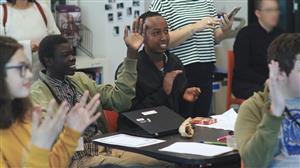
NGO developing young people with disabilities for leadership positions
In 2019 the Youth Disability Advocacy Service from Australia developed a leadership programme for young people with disabilities aged 14 to 25, and by 2022 there were 120 graduates, most of whom have gained paid employment. In addition, the programme has already been licensed to other organizations.
Youth Affairs Council Victoria, Young Leaders Programme, Australia -
Fast-growing, easy-to-replicate methodology to evaluate and improve inclusion in schools
Perkins School for the Blind, U.S.: Supports global education for children with disabilities. Through the Model Program Approach, reached over 1 million children via 133 programs in 15 countries by June 2023.
Model Program Approach, Mexico -
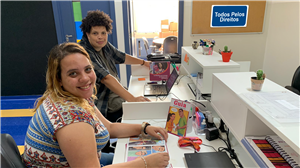
Self-advocacy group of persons with intellectual disabilities
Im Jahr 2011 initiierte das Instituto Jô Clemente in São Paulo, Brasilien, das Projekt "Selbstverteidigung", um Menschen mit geistigen Behinderungen zu befähigen, sich selbst zu verteidigen. Seit 2015 hat die Gruppe von Selbstvertretern einen Sitz im Stadtrat von São Paulo, im Jahr 2022 hatte sie 30 Mitglieder:innen.
Jo Clemente Institute, Self-Defence Project, Brazil -
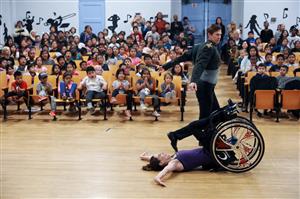
A professional dance company educating youth about disability inclusion in mainstream schools
Infinite Flow, U.S.: A Los Angeles-based inclusive dance company employing dancers with and without disabilities. Focuses on performance and education. Reached some 10,000 youth and 25 mainstream schools by 2023.
Elementary School Assemblies and ‘Scoops of Inclusion’, United States of America -
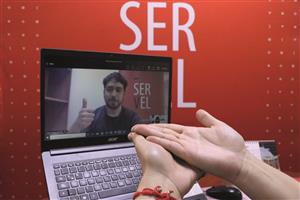
Sign language video support for the electoral participation of people with hearing disabilities
In 2021 the National Electoral Service SERVEL, which is responsible for conducting elections and voting in Chile, introduced a permanent video interpretation service in Chilean sign language on its website to support voter participation by people with hearing disabilities. In the same year 340 people used this service.
SERVEL - Electoral Service of Chile, The Sign Language Video Interpretation Service of SERVEL, Chile -
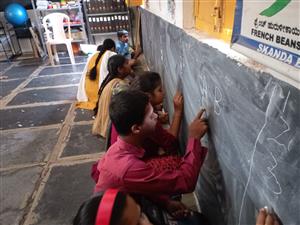
School-readiness programmes piloting government engagement in mainstream inclusive education
Fourth Wave's Schools Where All Belong, India: Supports children in 14 rural schools in Karnataka. Improved education access for over 60,000 children. In 2022, tasked with a training program for 30,000 participants.
Schools Where All Belong, India -
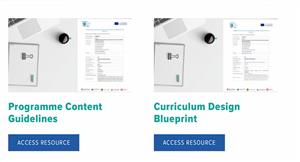
European university alliance fostering inclusion by sharing tools and good practices
CHARM-EU Alliance: Enhances European higher education inclusiveness and mobility. Focuses on creating inclusive environments and removing barriers. Provides free tools benefiting students, staff, and stakeholders worldwide.
CHARM-EU, Spain